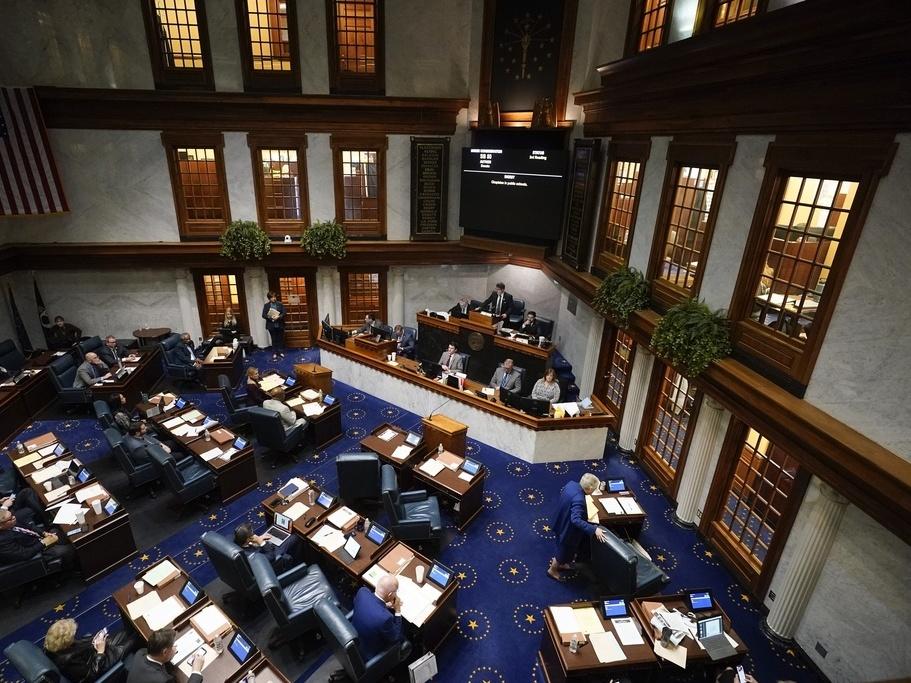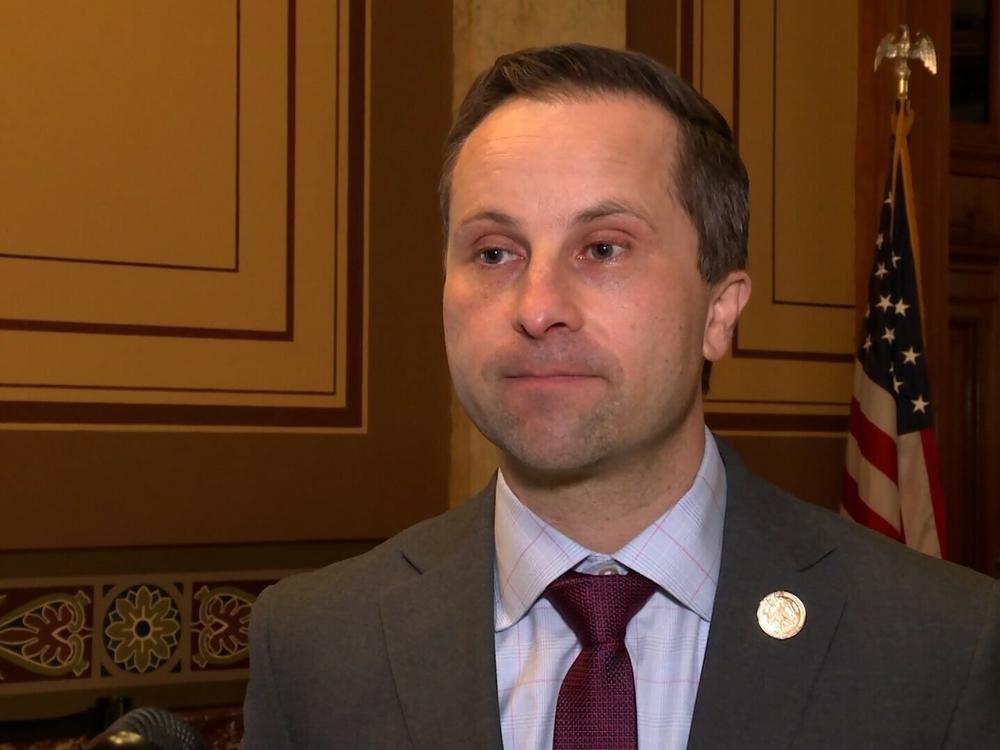Section Branding
Header Content
New Indiana law requires professors to promote 'intellectual diversity' to keep tenure
Primary Content
A new Indiana law allows universities to revoke a professor's tenure if they don't promote so-called "intellectual diversity" in the classroom.
Supporters of the measure say it will make universities more accepting of conservative students and academics. But many professors worry the law could put their careers in jeopardy for what they say, or don't say, in the classroom.
"I'd say it ends tenure in the state of Indiana as we know it," said Ben Robinson, associate professor of Germanic Studies at Indiana University.
Tenure is supposed to mean indefinite employment for professors, where they can only be fired for cause or some extraordinary circumstance. According to Robinson, the status "allows faculty the freedom to pursue their inquiries and their teaching without fear of reprisal."
But some academics in the state are worried that the new law allows university boards of trustees to interfere with tenure, which normally is handled by university departments.
That's not how supporters see it.
Republican state Sen. Spencer Deery, a former chief of staff for the Purdue University president and the bill's sponsor, said the new law would help conservative students feel more comfortable expressing their opinions on campus.
"The American public and Hoosiers as well are losing faith and trust in higher education," Deery said. "One of the strong reasons for that is, frankly, higher education hasn't done a great job of making every viewpoint feel welcome."
The law also creates a system where students and staff can submit complaints that could be considered in tenure reviews.
University leaders in Indiana are divided on the issue. IU president Pamela Whitten criticized the measure as it was working through the legislature, saying it threatens "the economic and cultural vitality of the state."
"We are deeply concerned about language regarding faculty tenure that would put academic freedom at risk, weaken the intellectual rigor essential to preparing students with critical thinking skills, and damage our ability to compete for the world-class faculty who are at the core of what makes IU an extraordinary research institution," she wrote.
But Purdue University board of trustees chair Michael Berghoff said the bill wouldn't change much, expressing doubt that the board would take a heavy-handed approach.
"Our own university has long been an institution that consistently 'walks the walk' in freedom of speech and freedom of inquiry," he wrote.
The Purdue University Senate passed a resolution denouncing the bill.
The law does include some protections for faculty, preventing trustees from disciplining professors for criticizing the university or engaging in public commentary.
Irene Mulvey, president of the American Association of University Professors, said protections don't go far enough.
"This is a big deal. This is a national thing," she said. "I've read the bill, and it's absolutely chilling."
Indiana is the third state, after Florida and Texas, to redefine tenure in recent years. A survey of Florida faculty found that after its law passed, nearly half of professors said they planned to seek employment in another state.
"We are seeing the brain drain that we predicted in Texas and Florida, and I think Indiana will follow suit there," Mulvey said.
A bill to completely eliminate tenure was introduced in Nebraska earlier this year.
The Indiana bill triggered protests on several campuses. Elena Ledesma, an undergraduate student at Indiana University, said she wants to work at a university in the future, and the new law concerns her.
"Freedom of speech is embedded in a university," she said. "This is just undermining it to the greatest degree it can."
Russ Skibba, a professor emeritus at Indiana University, said he was worried what the new law will mean for discussions on gender, race and other sensitive topics.
"There are a lot of people in this state that believe we need to keep moving forward: towards diversity, towards justice, towards fairness," he said. "It's time the legislature understood that."
Republican Gov. Eric Holcomb issued a statement after he signed the bill, saying he believes universities will "faithfully implement this law."


